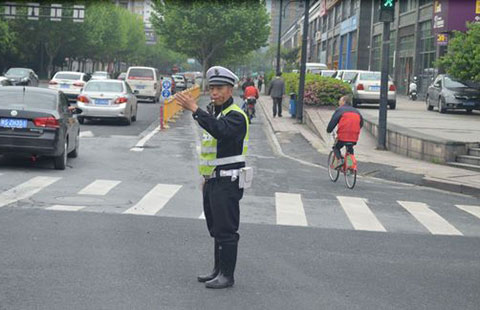Cancer treatment spurs public interest
By Shan Juan (China Daily) Updated: 2016-05-04 08:01
Huge public interest has been triggered in the treatment given to a young cancer patient who died after he learned about it from search engine giant Baidu.
Wei Zexi died from synovial sarcoma, a rare cancer of soft tissue, on April 12. He had been given immunotherapy.
Ying Jianming, deputy director of the Pathology Department at the Chinese Academy of Medical Sciences' Cancer Institute and Hospital, said immunotherapy is used to induce, strengthen or suppress an immune response to help fight diseases including cancer.
It includes two main approaches - stimulating the patient's immune system to work harder or smarter to kill cancer cells and giving the immune system new components.
"Immunotherapy in the past few decades has become an increasingly important weapon in treating cancers," he said.
Two drugs inspired by immunotherapy are available in the United States and Europe mainly to treat lung, liver, stomach and breast cancers and melanoma, a type of skin cancer.
However, they have not been approved by the Chinese drug authority.
Cai Qiang, who heads a medical tourism agency with headquarters in Beijing, said more Chinese cancer patients are traveling overseas to seek such treatment.
Ying urged people not to condemn immunotherapy simply because of media reports on Wei's death.
The therapy Wei received was first studied in the US but later phased out due to doubts that emerged during the clinical trials, Ying said.
But in China, this type of treatment, which Ying stressed would be helpful for some individual patients, is still practiced both in studies and for clinical use.
"But the latter is banned by the National Health and Family Planning Commission," he said.
Ying added that one of the two immunotherapy drugs available in the US and Europe is expected to be approved for use in China and could benefit patients by the end of the year.
But he said such treatment is still at an early stage.
- No letup in anti-graft fight, Xi warns Party ‘cabals and cliques’
- Families demand refunds for cancer treatment
- Emirates launches flights between Yinchuan and Dubai
- HK needs to rehabilitate its tourist-friendly image: Experts
- Fossil footprints bring dinosaurs to life
- More than 15 pct of China's population are over 60
- Baidu's share price drops after probe into search engine launched
- Baidu faces probe after outcry over cancer treatment
- PLA enlists rap-style music video to recruit young people
- Hukou problem surfaces after an 11-year-old lie comes to light








